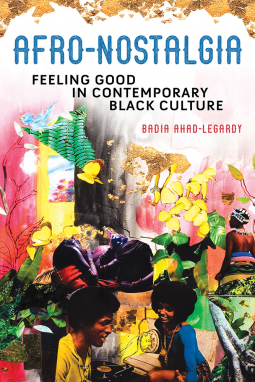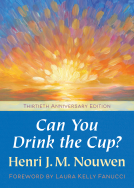
Afro-Nostalgia
Feeling Good in Contemporary Black Culture
by Badia Ahad-Legardy
This title was previously available on NetGalley and is now archived.
Send NetGalley books directly to your Kindle or Kindle app
1
To read on a Kindle or Kindle app, please add kindle@netgalley.com as an approved email address to receive files in your Amazon account. Click here for step-by-step instructions.
2
Also find your Kindle email address within your Amazon account, and enter it here.
Pub Date 12 Apr 2021 | Archive Date 23 Apr 2021
Talking about this book? Use #AfroNostalgia #NetGalley. More hashtag tips!
Description
The past as a building block of a more affirming and hopeful future
As early as the eighteenth century, white Americans and Europeans believed that people of African descent could not experience nostalgia. As a result, black lives have been predominately narrated through historical scenes of slavery and oppression. This phenomenon created a missing archive of romantic historical memories.
Badia Ahad-Legardy mines literature, visual culture, performance, and culinary arts to form an archive of black historical joy for use by the African-descended. Her analysis reveals how contemporary black artists find more than trauma and subjugation within the historical past. Drawing on contemporary African American culture and recent psychological studies, Ahad-Legardy reveals nostalgia’s capacity to produce positive emotions. Afro-nostalgia emerges as an expression of black romantic recollection that creates and inspires good feelings even within our darkest moments.
Original and provocative, Afro-Nostalgia offers black historical pleasure as a remedy to contend with the disillusionment of the present and the traumas of the past.
Badia Ahad-Legardy is an associate professor in the Department of English and Vice Provost for Faculty Affairs at Loyola University Chicago. She is the author of Freud Upside Down: African American Literature and Psychoanalytic Culture.
Advance Praise
"If you’ve been waiting for a book that steps out of trauma-time and the perpetual present of slavery clear-eyed and with its critical faculties alight, you’ve found it. Badia Ahad-Legardy breathes gentle and sweet smelling fresh air into stale corners in her book on Afro-Nostalgia, which cogently analyzes and affectively affirms Black cultural producers and chefs who treat the past less as an ongoing traumatic wound and more as a surrealistic space of black historical regenerative possibility and happiness. A gem."--Avery Gordon, author of Ghostly Matters: Haunting and the Sociological Imagination
Available Editions
| EDITION | Other Format |
| ISBN | 9780252085666 |
| PRICE | $26.95 (USD) |
| PAGES | 240 |
Links
Average rating from 8 members
Featured Reviews
Badia Ahad-Legardy presents a text that is insightful and well-researched, with much to offer the reader. I learned much reading this book and highly recommend it for students of culture, literature, and media.
This thoroughly researched book seeks and sheds light on the spaces where Black joy can live and flourish. Though its tone is academic, its insights reach far beyond the classroom. "I argue that 'pretty' modes of memory are also the province of the African-descended," writes Ahad-Legardy, who has broken the text into four chapters, deploying nostalgia "as a mode of historical redress, as a disruption of 'white nostalgia,' as a means of cultivating well-being, and as a strategy of cultural reclamation." I found the final chapter most compelling, as the author weaves aspects of her own food memory (foodoir) into a discussion of two different chefs' approaches to celebrating Black culture through food.
[Thanks to NetGalley for an advance copy of this book in exchange for an impartial review.]
Afro Nostalgia: Feeling Good in Contemporary Black Culture by Badia Ahad-Legardy is a thoroughly well researched and insightful book that examines Black joy.
The book explores Afro Futurism, music, food and other elements of Black culture. The book was written with an American lens which is understandable and positions Afro Nostalgia against the nostalgic lens of white America - a return to the status quo.
The cover is beautiful and depicts the era when the world cried Black is Beautiful perfectly.
***Thank you to Netgalley and University of Illinois Press for this ARC in exchange for an honest review.***
 Evalina I, Reviewer
Evalina I, Reviewer
Don’t let the title fool you. This is not light reading. Rather, it is a thought-provoking look at the role of nostalgia within African-American and African-descended culture. You may find the information presented disturbing on some levels but it will definitely lead to a lot of discussions.
I voluntarily reviewed a copy of this book provided by the publisher and Net Galley but the thoughts expressed are my own.
It takes a truly discerning mind to look at the discipline of Black Studies today and draw from it a nuanced yet neglected understanding of Black cultural production. Afro Nostalgia starts an important discussion in the realm of affect studies and contemporary Black culture that should prompt important discussions about the American propensity for nostalgia as well as the reclamation of the past from white supremacist politics. I can easily see extracts from this book on any number of syllabi.
"As early as the eighteenth century, white Americans and Europeans believed that people of African descent could not experience nostalgia."
This book explores an important subject that lacked exploration: the relationship between African-descended people and nostalgia and how that differs from white nostalgia. It breaks down how artists in different fields (literature, visual culture, performance and culinary) have used some form of nostalgic sentiment to create art and to heal trauma. Extremely interesting subject, structured as an academic reading but very accessible. I became familiarized with media that I was not before and I enjoyed the thought-provoking tone.
Afro-Nostalgia presents research that analyzes the impact of trauma on nostalgia. This text also presents information that suggests that we can ensure there is positive representation to combat negative associations with nostalgia. Ahad-Legardy asks readers to look past the trauma and historical events for joy and calls on artists and researchers to include more joy in their historical representations of Black Americans.






